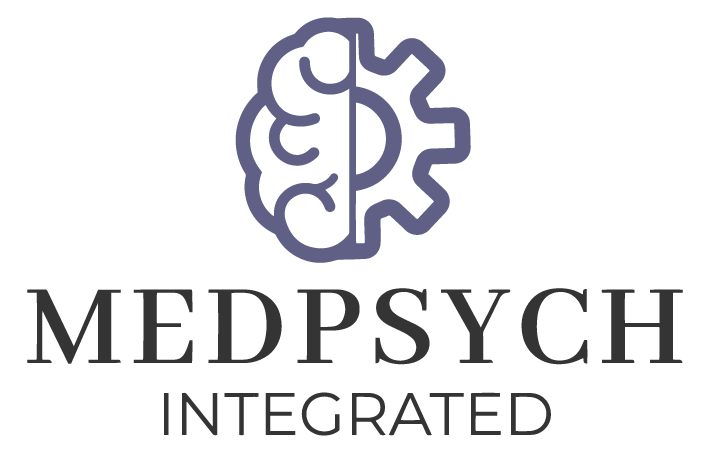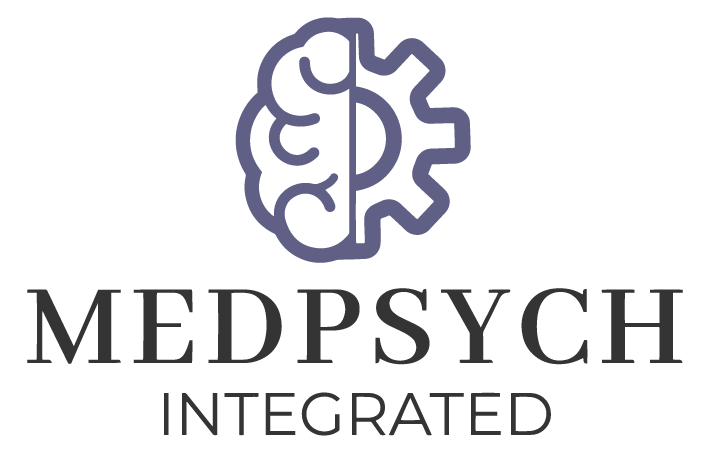Raleigh Psychiatric Medication Management
After the initial appointment, patients will return for follow-up appointments to monitor their medications. This is the “medication management,” aspect of psychiatric care. Our providers assess the effectiveness of medication over a course of time to determine if the treatment meets the patient’s goals.
Due to how psychiatric medications react differently within a patient’s brain chemistry, the effectiveness of the medications may vary from person to person. Every individual is unique. Through careful monitoring and ongoing discussion, we find the right medication and treatment plan to improve the patient’s mental health.

The use of prescription medications introduces potential risks and side effects, as with any medication. These are all discussed in detail, and weighed against the benefits of the medications, with each patient. Not all patients and not all psychiatric problems need medicines, but there are certainly instances where prescription medicines are the best treatment. Medicines are commonly an important and effective part of the treatment of many mental illnesses to include depression, schizophrenia, bipolar disorder, anxiety, panic, sleep problems, attention deficit disorder, and several other disorders.
Anti-Anxiety Medications
Anti-anxiety medications help reduce the symptoms of anxiety, such as panic attacks, or extreme fear and worry. The most common anti-anxiety medications are called benzodiazepines. Benzodiazepines can treat generalized anxiety disorder. In the case of panic disorder or social phobia (social anxiety disorder), benzodiazepines are usually second-line treatments, behind SSRIs or other antidepressants
Stimulants
As the name suggests, stimulants increase alertness, attention, and energy, as well as elevate blood pressure, heart rate, and respiration (National Institute on Drug Abuse, 2014). Stimulant medications are often prescribed to treat children, adolescents, or adults diagnosed with ADHD.
Antipsychotics
Antipsychotic medicines are primarily used to manage psychosis. The word “psychosis” is used to describe conditions that affect the mind, and in which there has been some loss of contact with reality, often including delusions (false, fixed beliefs) or hallucinations (hearing or seeing things that are not really there). It can be a symptom of a physical condition such as drug abuse or a mental disorder such as schizophrenia, bipolar disorder, or very severe depression (also known as “psychotic depression”).
Mood Stabilizers
Mood stabilizers are used primarily to treat bipolar disorder, mood swings associated with other mental disorders, and in some cases, to augment the effect of other medications used to treat depression. Lithium, which is an effective mood stabilizer, is approved for the treatment of mania and the maintenance treatment of bipolar disorder. A number of cohort studies describe the anti-suicide benefits of lithium for individuals on long-term maintenance. Mood stabilizers work by decreasing abnormal activity in the brain and are also sometimes used to treat:
- Depression (usually along with an antidepressant)
- Schizoaffective Disorder
- Disorders of impulse control
- Certain mental illnesses in children
Our team's expertise and caring nature is the recipe for success in each patient's path to mental wellness and recovery. You can rest assured our Raleigh Psychiatrist and mental health providers at Medpsych Integrated will help you improve the quality of your life.
Testimonials
Cary Location:
1110 SE Cary PKWY
Suite 207
Cary, NC 27518
Phone: 919-582-7272
Fax: 833-941-3156


Raleigh Location:
7780 Brier Creek Parkway
Suite 306
Raleigh, NC 27617
Phone: 919-582-7272
Fax: 833-941-3156


Psychiatrist in Raleigh - Medication Management - Psychiatric Evaluations - Accepting New Patients
The content on this website is for general information and educational purposes only, and is not intended to substitute professional services.















